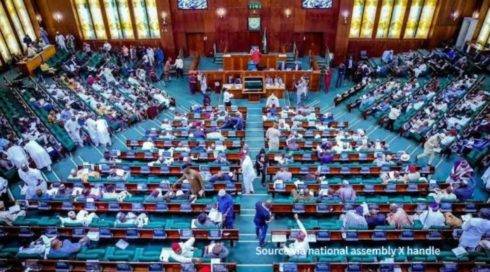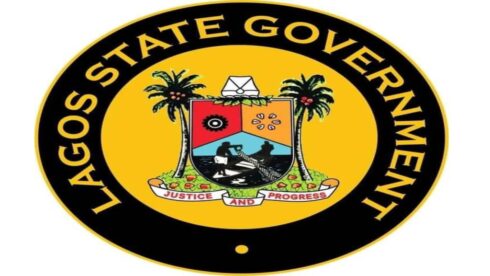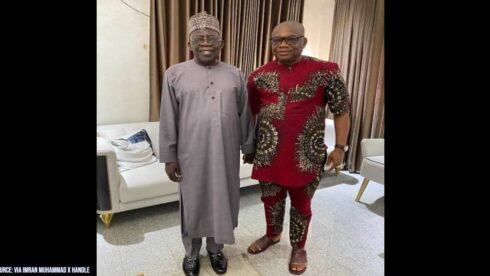The salaries of Nigerian Senators have long been shrouded in controversy and misconceptions. Many Nigerians harbor beliefs that their elected representatives in the National Assembly are excessively compensated, especially given the country’s ongoing economic challenges. The narrative that Nigerian Senators earn exorbitant salaries has been fueled by both misinformation and a lack of transparency, leading to widespread distrust among the populace.
Recently, former President Olusegun Obasanjo added fuel to this fire by openly criticizing the National Assembly for determining its own salaries and allowances. Obasanjo described this practice as “immoral,” asserting that the responsibility should fall under the Revenue Mobilisation Allocation and Fiscal Commission (RMAFC), not the lawmakers themselves. His statements have amplified existing concerns, leading many Nigerians to question the integrity and fairness of the system. However, it’s essential to separate these long-standing myths from the actual facts to gain a clearer understanding of the situation.
Facts About Nigerian Senators’ Earnings
Despite the widespread belief that Nigerian Senators receive exorbitant compensation, the reality is more nuanced. Senators do earn a substantial salary, but their income structure includes both official earnings and various allowances, which are often misrepresented or exaggerated in public discourse. For instance, while it is true that lawmakers receive allowances for various expenses, these figures have often been misquoted or misunderstood, leading to inflated perceptions of their total earnings.
In response to Obasanjo’s claims, current lawmakers have vehemently denied the former president’s allegations, arguing that the compensation structure has changed significantly since his time in office. They assert that the current administration under President Bola Tinubu operates under different guidelines, with stricter adherence to the stipulations set by the RMAFC. Lawmakers argue that their earnings, while still substantial, are not as excessive as the public has been led to believe. This discrepancy highlights the need for better transparency and accurate reporting on the salaries and allowances of Nigerian Senators to bridge the gap between perception and reality.
Myth: Senators Fix Their Own Salaries
One of the most pervasive myths is that Nigerian Senators have the power to set their own salaries and allowances. However, this belief is entirely false. The constitutional authority to determine the salaries and allowances of Senators, as well as other public office holders, resides with the Revenue Mobilisation, Allocation, and Fiscal Commission (RMAFC). The Senate, therefore, does not have the autonomy to alter or fix its compensation.
Senate spokesperson Yemi Adaramodu reinforced this position, stating, “The senators or the National Assembly do not and cannot fix their salaries. Any suggestions to the contrary are uncharitable and satanic.” This statement underscores the commitment of the legislative body to uphold constitutional provisions and reject any insinuations of self-aggrandizement. The misconception that Senators can determine their own pay reflects a broader misunderstanding of the checks and balances embedded in Nigeria’s governance structure.
Myth: Senators Receive Incentives from the Presidency
Another commonly held belief is that Nigerian Senators receive financial incentives or patronage from the Presidency, particularly in relation to the controversial N100 billion allocated for constituency projects. This notion has been firmly denied by the Senate. The funds allocated for constituency projects are not intended for personal use by the lawmakers but are earmarked for developmental projects within their respective constituencies.
As Adaramodu clarified, “No Senator has received any monetary patronage from the Presidency. The mischievously touted constituency projects are not for the legislators. They are only suggested and nominated by the legislators in accordance with the practice in other democracies worldwide.” This explanation is crucial in understanding the purpose of constituency projects, which aim to address specific developmental needs within communities, not to serve as a financial windfall for legislators.
Fact: Senators’ Salaries Are Transparent, But Running Costs Remain Controversial
Contrary to the belief that Senators’ salaries are shrouded in secrecy, the RMAFC has prescribed a clear salary package for Nigerian Senators. The total monthly entitlement of each Senator, including their basic salary and various allowances, is approximately N1,063,860. This figure covers a range of expenses, including vehicle maintenance, personal assistants, domestic staff, utilities, and constituency allowances.
RMAFC spokesperson Ibrahim Mohammed confirmed, “The total monthly entitlement of each senator as salary and allowances is about N1 million (N1,063,860).” However, while the base salary and allowances are transparent, the issue of “running costs” remains a subject of contention. Former Senator Shehu Sani once revealed that he received an additional N13.5 million monthly as “running cost,” a figure that is not officially disclosed or regulated by the RMAFC.
The debate over the high cost of governance in Nigeria is ongoing, with many calling for a reduction in expenses. However, it is crucial to base these discussions on verified facts rather than myths. Understanding the actual salaries of Senators and the processes behind their determination allows Nigerians to engage in more informed and constructive dialogue about governance and accountability. As Adaramodu aptly put it, “The 10th Senate is a responsible and responsive chamber, hence would not do anything that can harm the economy and growth of Nigeria
Table of Contents
Discover more from OGM News NG
Subscribe to get the latest posts sent to your email.













